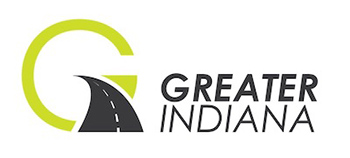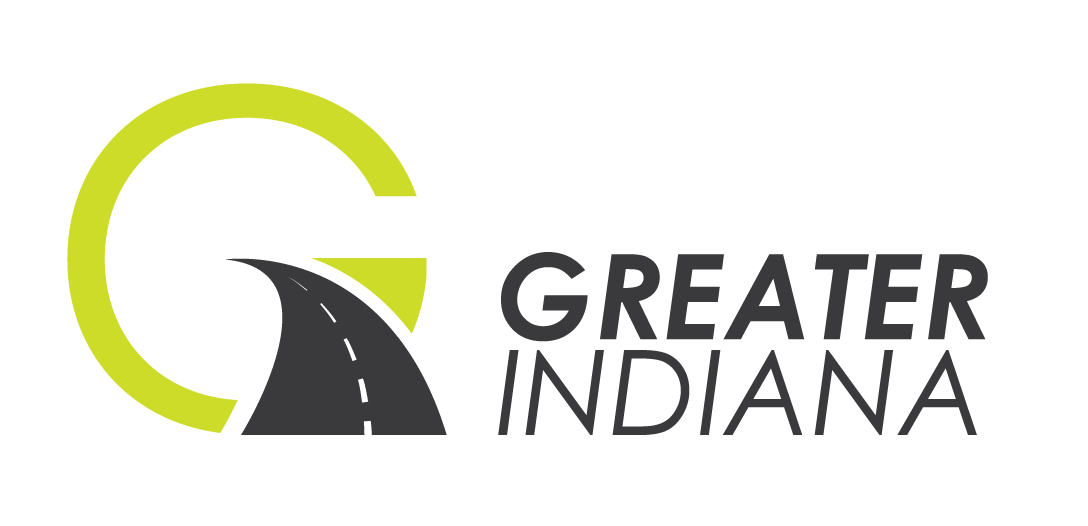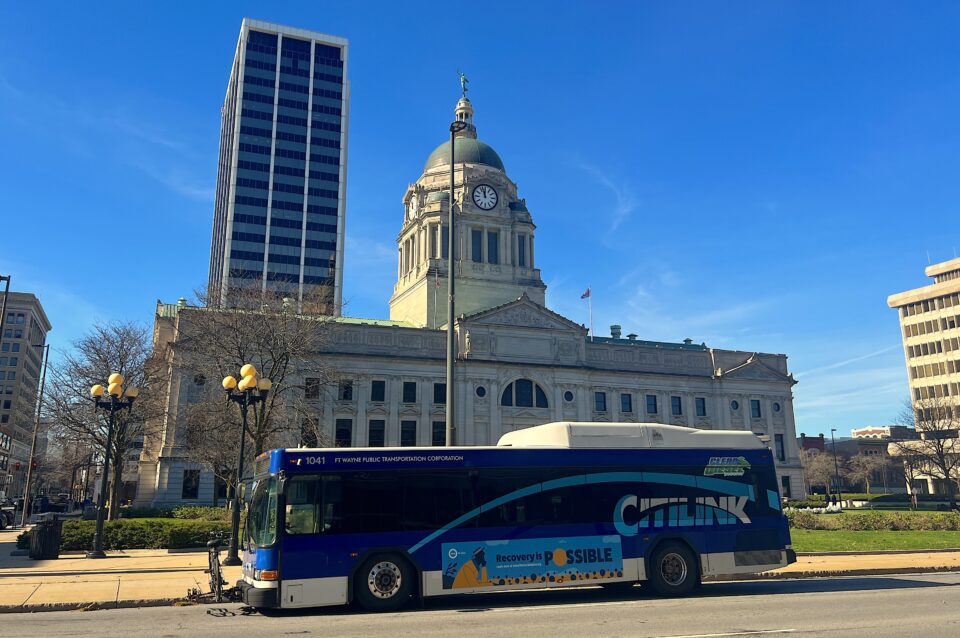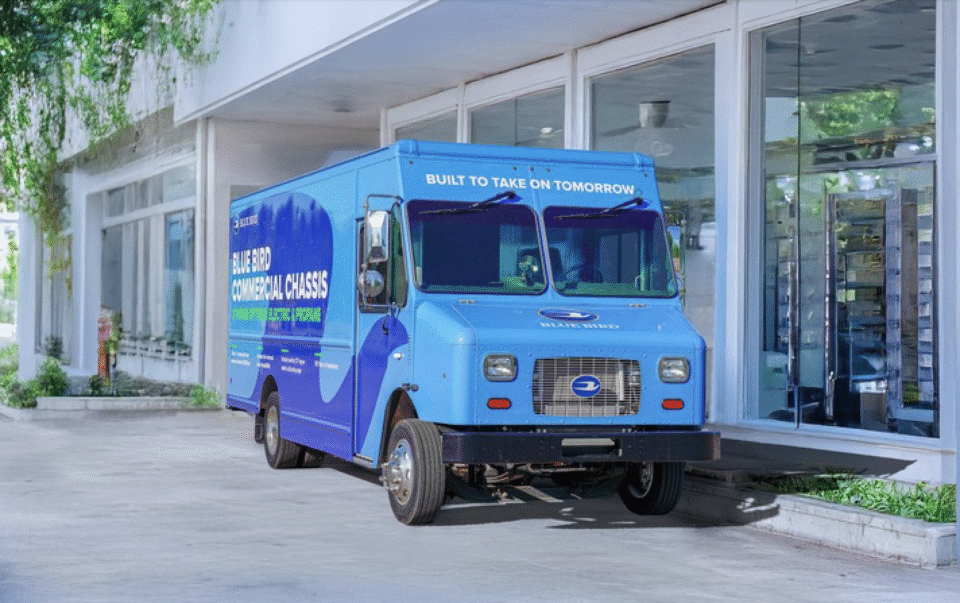Pennsylvania School District Operates Propane Buses for a Decade
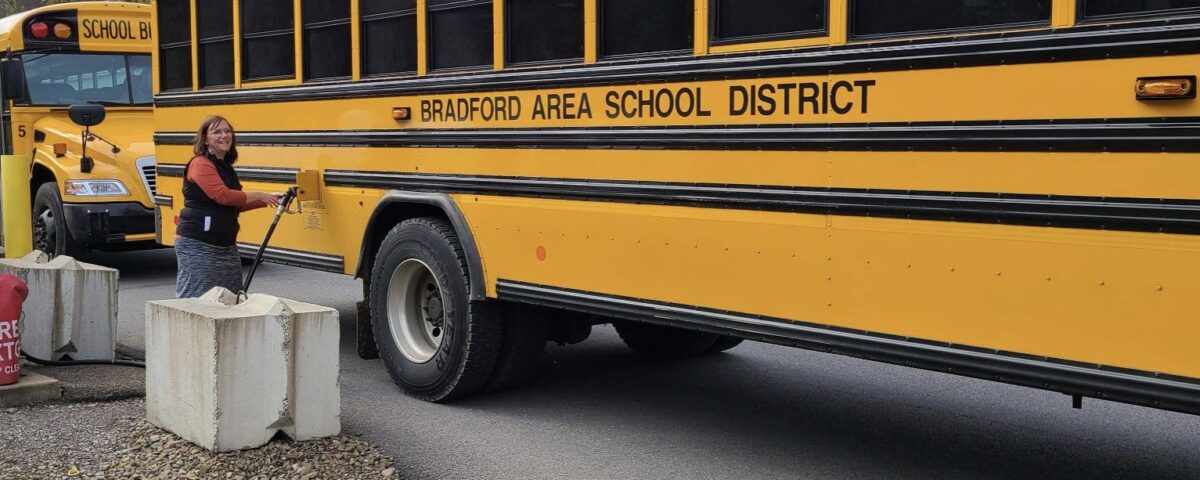
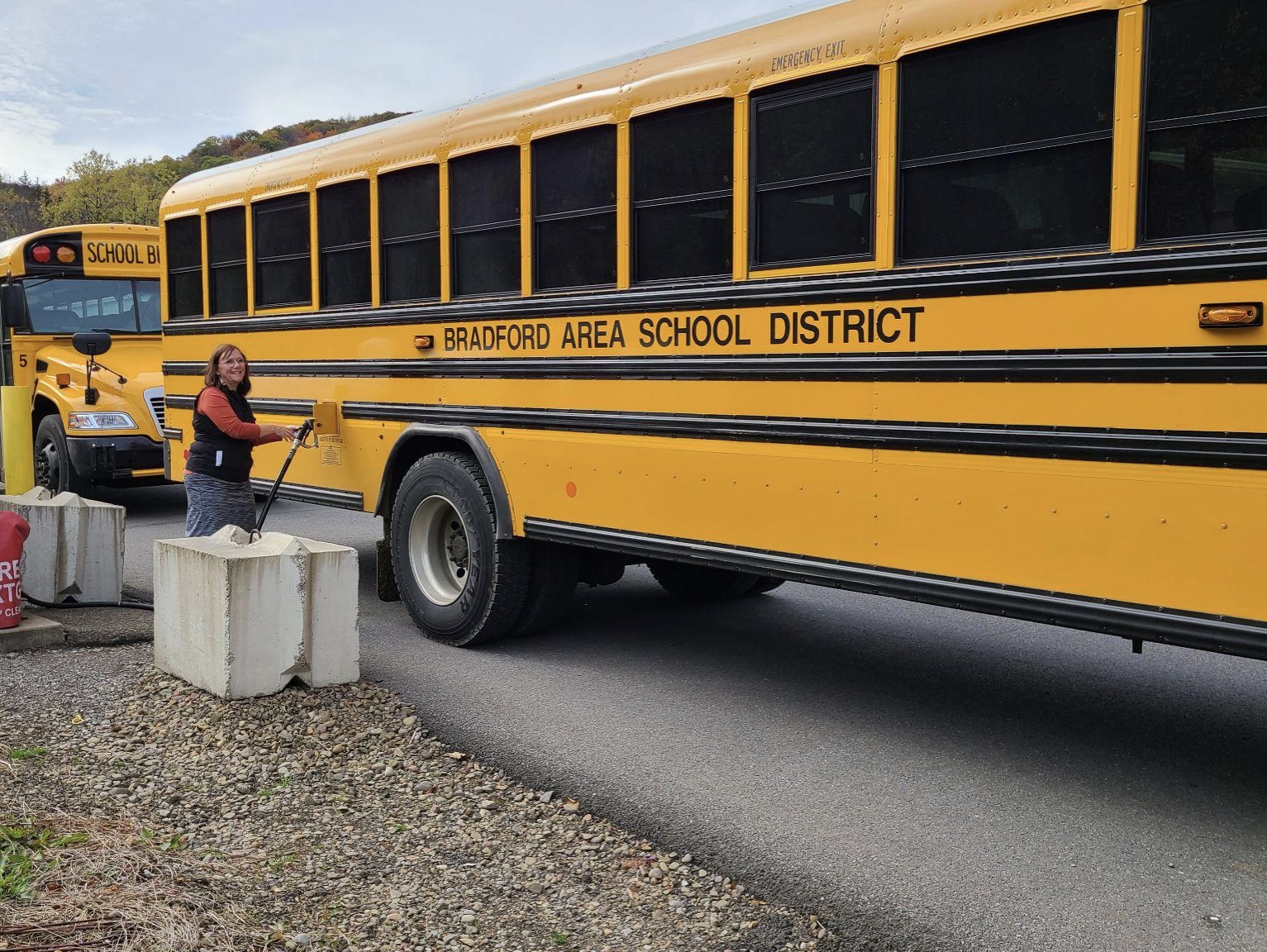 Located in a mountainous region in northern Pennsylvania surrounded by the Allegheny National Forest, Bradford Area School District transports about 2,500 students to school on 18 daily bus routes that cover an attendance area spanning about 250 square miles.
Located in a mountainous region in northern Pennsylvania surrounded by the Allegheny National Forest, Bradford Area School District transports about 2,500 students to school on 18 daily bus routes that cover an attendance area spanning about 250 square miles.
Ten years ago, the district embarked on a forward-thinking initiative to replace its aging diesel buses with a cost-efficient and environmentally friendly fuel: propane autogas. The propane buses have successfully managed the weather, terrain, and wear and tear of daily operations in Pennsylvania and provided the district with significant cost savings. Today, the district operates 100% of its routes using propane school buses.
“Over my 40-year career, in which I have overseen the purchase and maintenance of hundreds of buses, I have never seen a bus design that saves over $3,000 per year,” said Barry Bryan, director of transportation for the district. “This is a huge number for any contractor or school district. I’m surprised we’re not seeing more of these units rolling down the road.”
Abundant Propane Supply
More than 90% of the United States propane autogas supply is produced domestically using materials that would go to waste if they were not salvaged from other energy processes. According to the Propane Education & Research Council, the Marcellus shale, which is located in the Appalachian Basin, can supply more than 2 billion gallons of propane per year.
“Our area has an abundance of propane due to local Marcellus and shallow wells, so we are doing our part to support local industry and the community,” said Bryan, who holds a degree in environmental science. “And because of my background, I have a strong interest in green energy.”
Lowered Emissions
The district’s Blue Bird Vision buses, which are equipped with ROUSH CleanTech propane autogas engines, dramatically reduce nitrogen oxide emissions and virtually eliminate particulate matter — substances identified by the Environmental Protection Agency as harmful to students and the environment.
“The biggest thing we’ve noticed is that the clean operation of the propane buses has reduced the emissions in our garage and around our schools,” said Bryan. “There is far less crude build-up on our computer screens inside of our maintenance bays, which is obviously a plus for our lungs.”
The school district’s newest propane buses, which arrived in 2023, are certified to 0.02 g/hphr NOx. They’re 90% cleaner in NOx than the EPA and California Air Resources Board (CARB) regulations set to take effect in 2027.
Operational Benefits
“Our propane buses greatly reduce the time spent in maintenance when compared to the maintenance required to keep the emission equipment on a diesel bus operational,” said Bryan. “Thus, our mechanics have been very happy.”
The buses run quieter than their diesel counterparts and allow the drivers to more easily interact with passengers. Buses fueled by propane reduce noise levels by about half compared to a diesel engine. “Every driver of our propane buses has expressed a preference of the propane model over the diesel due to reduced cabin noise and increased power on hills,” Bryan said.
“The Bradford area saw temperatures of negative 25 degrees Fahrenheit in 2015, and our propane buses ran without missing a beat,” said Bryan. The propane autogas fuel system used in the Blue Bird Vision heats the buses quickly and provides unaided cold weather starts at negative 40 degrees Fahrenheit.
Immediate and Long-Term Savings
Leadership was thrilled that the district saw a return on its investment within the first year of operation. Propane buses offer the lowest total cost of ownership compared with other alternative fuels.
On average, propane autogas costs about 50% less than diesel. Currently, the district is paying $4.70 per gallon of diesel versus $1.50 for propane. The district received a $5,000 rebate on the cost of each initial bus in 2013, and has subsequently accessed funding from Pennsylvania’s Alternative Fuel Incentive Grant program as well as the Environmental Protection Agency’s Clean School Bus Program. Propane also qualifies for a $0.37 per gallon government incentive through the alternative fuel tax credit.
All savings from the operation of propane buses have been allocated back into the district’s general budget, including the savings in fuel costs.
Positive Performance and Feedback
Bryan and the transportation staff have only positive feedback about their decade-long experience operating propane school buses. “Our propane buses are easy to maintain, create less pollution, increase financial savings and operate on a local fuel,” said Bryan. “I can’t express how pleased I am with the performance of our propane fleet.”


Todd Mouw is executive vice president of sales and marketing of ROUSH CleanTech, an industry leader of advanced clean vehicle technology. Mouw has more than two decades of experience in the automotive and high-tech industries. As former president of the NTEA Green Truck Association, Mouw helped set standards in the green trucking industry. To learn more, visit ROUSHcleantech.com.
